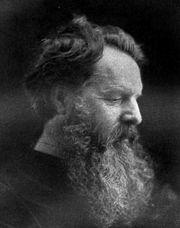
1816 - 1881 Hymnal Number: d144 Author of "We were crowded in the cabin" in The Golden Harp Fields, James Thomas, born in Portsmouth, New Hampshire, Dec. 31, 1816; was for some years a partner in the Boston publishing firm of Ticknor and Fields, and also the editor of the Atlantic Monthly from 1862 to 1870. From the 1854 edition of his Poems, Putnam has given 13 pieces in his Singers and Songs, &c, 1874, p. 437, one of which, "Thou Who hast called our being here "(Child's Hymn), has come into common use. He died April 24, 1881.
--John Julian, Dictionary of Hymnology, Appendix, Part II (1907)
=================
Born: December 31, 1817, Portsmouth, New Hampshire.
Died: April 24, 1881, Boston, Massachusetts.
Buried: Mount Auburn Cemetery, Cambridge, Massachusetts.
Fields’ father, a sea captain, died before John was three. Fields and his brother were raised by their mother and her siblings, their aunt Mary and uncle George. At age 14, Fields took a job at the Old Corner Bookstore in Boston as an apprentice to publishers Carter and Hendee. His first published poems appeared in the Portsmouth Journal in 1837, but he drew more attention when, on September 13, 1838, he delivered his Anniversary Poem to the Boston Mercantile Library Association.
In 1839, Fields joined William Ticknor and became junior partner in the publishing and bookselling firm known after 1846 as Ticknor and Fields, and after 1868 as Fields, Osgood & Company. Ticknor oversaw the business side of the firm, while Fields was its literary expert. He became known for being likable, for his ability to find creative talent, and for promoting authors and winning their loyalty. With this company, Fields became the publisher of leading contemporary American writers, with whom he was on terms of close personal friendship. He was also the American publisher of some of the best known British writers of his time, some of whom he also knew intimately. The company paid royalties to these British authors, including Charles Dickens and William Makepeace Thackeray, at a time when other American publishers pirated the works of those authors. His firm published the first collected edition of Thomas de Quincey’s works (20 volumes, 1850-55) . Ticknor and Fields built their company to have a substantial influence in the literary scene which writer and editor Nathaniel Parker Willis acknowledged in a letter to Fields: "Your press is the announcing-room of the country’s Court of Poetry."
In 1844, Fields was engaged to Mary Willard, a local woman six years younger than him. Before they could be married, she died of tuberculosis on April 17, 1845. He maintained a close friendship with her family and, on March 13, 1850, married her 18-year old sister Eliza Willard at Boston’s Federal Street Church. Also sick with tuberculosis, she died July 13, 1851. Grief stricken, Fields left America for a time and traveled to Europe.
In 1854, Fields married Annie Adams, who was an author herself. She was instrumental in helping her husband establish literary salons at their home at 37 Charles Street in Boston, where they entertained many well known writers, such as Nathaniel Hawthorne. After Hawthorne’s death in 1864, Fields served as a pallbearer for his funeral alongside Bronson Alcott, Ralph Waldo Emerson, Oliver Wendell Holmes, Henry Wadsworth Longfellow, and Edwin Percy Whipple. In 1867, he performed the same role after the death of Nathaniel Parker Willis, along with Holmes, Longfellow, James Russell Lowell, and Samuel Gridley Howe.
Ticknor and Fields purchased The Atlantic Monthly around 1859 for $10,000 and, in May 1861, Fields took over the editorship from Lowell. At a New Year’s Eve party in 1865, he met William Dean Howells, and 10 days later offered him a position as assistant editor of the Atlantic. Howells accepted, but was somewhat dismayed by Fields’ close supervision.
Fields was less concerned with the retail store owned by the company, and wanted to focus on publishing. On November 12, 1864, he sold the Old Corner Bookstore and moved Ticknor and Fields to 124 Tremont Street. On New Year’s Day, 1871, Fields announced his retirement from the business at a small gathering of friends. No longer occupied by editorial duties, he devoted himself to lecturing and writing. He also edited, with Edwin Percy Whipple, A Family Library of British Poetry (1878).
Fields became increasingly popular as a lecturer in the 1870s. In May 1879, he suffered a stroke and collapsed before a scheduled lecture at Wellesley College. By autumn, he seemed to have recovered. In January 1881, he gave what his final public lecture, coincidentally at the Mercantile Library Association, the organization that hosted his first public reading.
In the field of hymnology, 13 pieces from the 1854 of edition of Fields’ Poems appeared in Putnam’s Singers and Songs.
--www.hymntime.com/tch/
James T. Fields


 My Starred Hymns
My Starred Hymns



